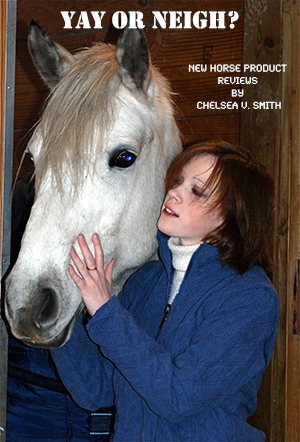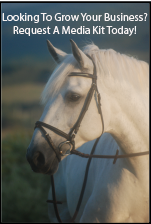How to Find Your Kid a Good First Riding Instructor
by Holly Peterson
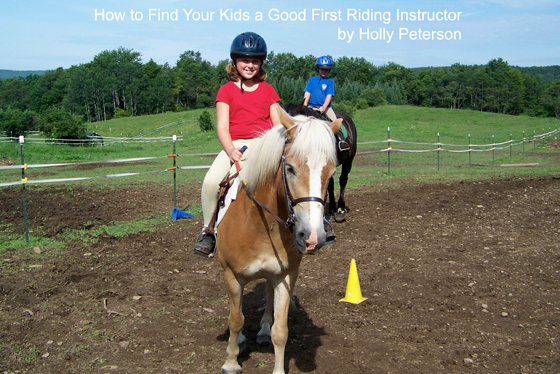
As a trainer, it never ceases to amaze me when new clients schedule a lesson for their child without ever having met me, know next to nothing about me, have never seen my facility, and wave me off when I try to explain our program. This isn’t dance class; they are going to be working around thousand pound animals. You need to ask questions and lots of them!
You need to know to whom you are entrusting your child’s welfare. This process can be a little overwhelming for non-horse parents so if you have a horse savvy friend to help you that’s great. I find parents tend not to know what to ask, if they ask anything at all, so I hope this helps.
1. Most Importantly- Know your Child.
Are they outgoing or reserved?
Are they open to trying new things?
Have they been around horses?
Why do they want to take lessons?
What style of riding do they want to do? Many people aren’t sure on this one if they don’t know anything about horses or riding. A good basic Balanced Seat is a great place to start but generally new riders will pick either ‘Western’ or ‘English’ style. Western is the one with the “handle” on the front or cowboy style. English has no handle (Hunt Seat, Jumpers, Dressage).
If you're still not sure, I’d recommend a barn that does both. This way the instructor can show your child each style and let them decide.
2. Do you know anyone who rides?
No - Check the phone book for local stables or visit community resources such as this one at CatskillHorse.org.
Yes - Who do they recommend for kids lessons? A friend’s recommendation is always helpful but I would still encourage you to check out the program before scheduling a lesson.
3. When calling barns about lessons your first question should be:- Do they have a Kids Program?
No - Keep Looking. A barn that doesn’t have a regular kids program may not be equipped to start your child. While this does not mean they can’t teach your child to ride, kids require equipment meant for kids. They also require beginner level horses that are used to the mistakes beginners make. A barn with a solid Kids Program should have one of these 'steady-eddy beginners’ horses in their line-up.
Yes - Great. Ask them to describe their program to you. First and foremost they should be able to describe their program and process to you. I like to see a barn that not only has a clear plan/program in place, but is open to having potential clients visit the facility and meet the instructor, and gives you the opportunity to ask questions pertinent to your child.
What can your child expect from their first lesson?
For example, on our farm every new rider to the program has the same first lesson. “This is a horse, this end eats, this end poops. Don’t feed the treat to the wrong end, they don’t like it….”. We go over safety rules, how to approach and move around a horse, grooming, tacking, leading, mounting/dismounting, stop/start/steer. This basic first lesson sets up the guidelines for all following lessons.
What do they offer for your child’s age group?
Not all farms have programs for the younger groups. Children less than three years old are really too young to start in a lesson program. Some farms offer lessons for as young as three but most start at four or five years of age. Lessons for kids this young should always have extra help, one person to support the child and one controlling the horse, until the child is comfortable and balanced.
Children five years old and over are generally fairly balanced and able to take and follow the directions from the instructor, but should still have someone close by for a lesson or two.
Are they group or individual lessons?
In my opinion, first lessons should always be an individual lesson for a one on one introduction and instruction. There is a lot to learn and first lessons can be a little overwhelming, especially if the child is thrown into a group setting.
If they are starting in a group setting, what is the student/instructor ratio?
Ideally for a beginners group, you’d like to see no more than a 3:1 ratio(3 students : 1 instructor). 4:1 would be considered acceptable if they have great horses and an assistant instructor. Putting more beginners than that in a group setting is unsafe. An instructor no matter how good they are can only see so much at one time. As riders become more advanced and become comfortable controlling the horse, these ratios will change.
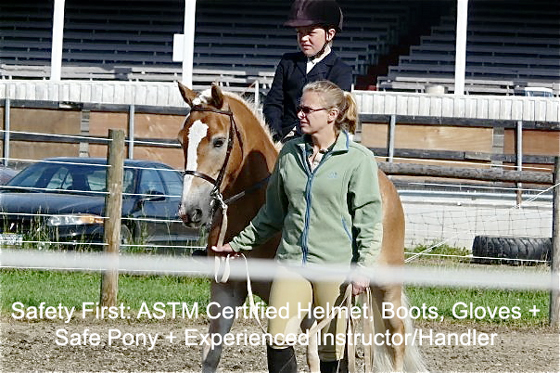
What safety standards do they have? Do they require boots? Helmets?
No - Keep Looking. Safety Standards are a must in this industry.
Yes - Great. What are they? At the very least, they should require your child to wear long pants and a heeled boot. I would be suspect of any barn that allows a child to lesson in shorts and sneakers, or worse sandals or flip-flops. This is a major safety hazard.
Helmets are not optional for children! Children are required by law to wear a helmet while mounted. This is true in most states. Lesson barns will generally have extra helmets on hand for kids to borrow for the first couple of lessons. It should fit snuggly and not shift around on your child’s head. A helmet won’t protect your child in a fall if it doesn’t stay on their head. If your child chooses to continue riding it is recommended to get them a helmet of their own.
What are their requirements for their program?
Do they have to show/compete? Some barns require a minimum number of lessons per week/month or push the kids to compete. For the average beginner once a week is perfectly acceptable. You are certainly able to add additional days to their riding schedule but I wouldn’t commit to anything until you’re sure your child wants to ride.
I personally discourage parents from fast tracking their kid to the show ring unless it is truly what the child wants. When you’re just starting out you have no idea if you want to show or not, so this is not something you should have to decide for the first few lessons.
Not all lesson programs are alike, so it is important to be very clear from the start what you are after for your child. If you are just looking for a solid introduction to horses, a competition barn might not be the one for you. Great lesson barns tend to offer all levels of instruction from the beginner and pleasure riders to the more serious competitors.
Keep in mind if it sounds like too much for you, then it will most likely be so for your child.
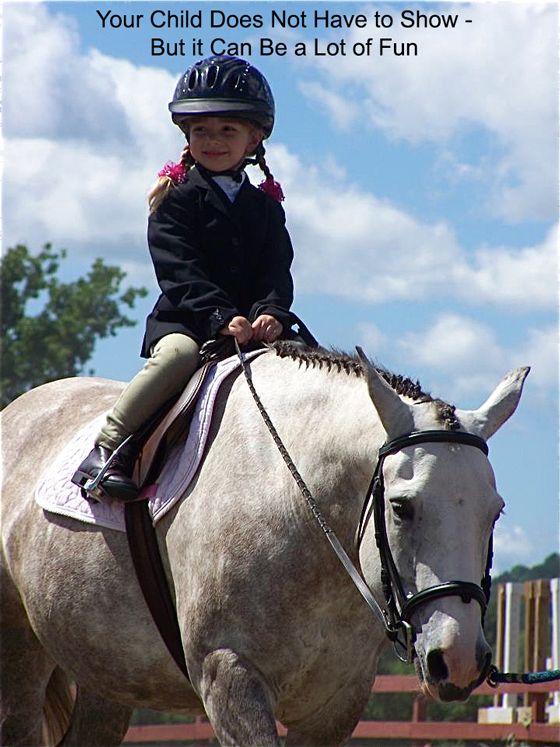
4. Go check out the Facility.
Nothing beats visiting the facility. If you can arrange to meet with the instructor and watch a lesson while your there that is even better.
Ask yourself as you look around:
Did they take the time to show you around? Take time to answer your all questions? Introduce you to other people in the barn? Are the people at the barn friendly? Did the barn owner/instructor give you the opportunity to talk to other clients?
A ‘No’ to any of these would be a concern to me. If they don’t care or have time for you as a potential client, what will it be like when you are a client?
Do they have an arena?
No - Where do they ride? Unless it’s a trail riding facility they should have a safe enclosed area for your child to learn to ride in. Children should not learn to ride on the trail as this is an unpredictable environment for both horse and rider. Start up riding should always take place in a safely enclosed space.
Yes -What is the arena like? Is it in good condition or are there boards falling down? Is there debris in the arena that your child could get hurt on? Does it look safe to you? If the answer is no, then you have to ask if you want your child riding there.
What condition are the horses in? Do they appear to be healthy, shiny and happy or are they skinny, dirty, grumpy and/or have open wounds?
The condition of the barns horses is very telling and speaks to the commitment the farm has to their animals. You ideally want to see shiny, happy, healthy horses. Preferably, not horses that have one foot in the grave from lack of care.
What are the lesson horses like? How long have they been a lesson horse? How long have they owned the horse?
If they haven’t had the horse very long, they get new horses in ‘all the time’, can’t tell you much about it, the horse is younger than five years old or it still has an auction hip tag, I’d be pretty hesitant to let my child ride it. They should be able to tell you something about the horse and it should have a proven (good) track record in the program.
For example: “Blossom is an eight year old Quarter Horse Cross. We’ve had her since she was three years old. She started doing lessons for us when she was five and she’s been our go-to girl for all the beginners’ lessons for the last two years because she’s so gentle.” There should be no hesitations or question about which horse your child should ride for a first lesson.
What condition is the barn itself?
Does it look like its being maintained or is it falling down? I have been in many ‘old’ barns that at first glance didn’t look great but were in fact well maintained, clean and their horses in great condition- just a little worn around the edges. Just because a barn isn’t sparkling ‘new’ does not mean they don’t run a great program. Just as sparkling ‘new’ doesn’t always equal a good program.
If you are uncomfortable when you tour the facility you should probably keep looking.
5. The Instructor/Trainer. This is the person who will actually be handling your child and teaching them to ride.
Is the person you talked to the person that will be teaching your child?
No - Who will be teaching your child? What experience do they have with kids? Who are they lessoning with; an instructor, an assistant instructor, a teenage kid, someone who’s never taken a lesson in their life but likes horses so they thought they’d give teaching a whirl?
Yes - If it’s an instructor or assistant instructor, you should be O.K. A teenager can bring a lot of life to a lesson so I wouldn’t immediately discount them as unacceptable. However, I would like to see them being supervised by an instructor.
If it’s the last one, please, for the sake of your child, keep looking!
Do they have any teaching certifications?
No -It is not necessarily an indicator of a “bad” instructor if they don’t. Ask what experience they have and how long they have been teaching. They may have worlds of experience and have apprenticed and taught under someone else to gain experience.
Yes - Great. You still want to ask about their experience and how long they have been teaching. Instructor certification programs such as American Riding Instructor Association (A.R.I.A and Certified Horseman Association (C.H.A.) are great. They set guidelines, standards and tests, which the instructor must pass in order to gain their certification. However, they are not always an indicator of a ‘good’ instructor. Think about it this way, just because someone is a doctor doesn’t mean they are a ‘good’ doctor. There are good ones and bad ones even though they are still doctors.
This is important. What makes them qualified to teach your child?
It’s not rude to question someone’s qualifications; it’s your right as a parent to know that the person setting your child on the back of a thousand pound animal knows what they are doing.
Are they insured?
No - Keep Looking
Yes - Great. Every farm should already have a Liability Insurance plan in place. The instructors should also be carrying policies that cover their riders. Do not be afraid to ask what type of coverage they have. Do not assume they are covered just because they are in business.
When you go for a tour:
What is the instructor like? Did they greet you? Did they greet your child? How do they interact with your child? Are they approachable? Were you able to watch any of the lessons? How do they talk to the children while they are teaching? What kind of energy do they bring to the lesson?
When you’re watching a lesson, is the instructor on the phone, talking to people other than students, screaming or yelling at the kids, distracted or disengaged during the lesson or are they engaged, enthusiastic, energetic with a ‘lets go!’ attitude? You should want to start your child’s horse journey with someone who, not only, is going to treat them with respect, foster their love of the horse in a safe and controlled manner, but talks to them not at them. Certainly not with someone who screams their students.
Horses, no matter how small, are powerful animals. The instructors’ attention should be on their students throughout the lesson. Even in the event of an emergency, the instructors’ priority and attention should be with your child. Great kid instructors are worth their weight in gold. They bring energy and fun into the lessons, which keep them coming back. Let’s be honest, if it’s not fun the kids aren’t going to want to ride.
Instructors are tricky business and don’t be afraid to be a little picky. A ‘big name’ isn’t always the best choice. There are some fabulous, certified, “somebody” instructor/trainers out there, who just plain don’t get kids. They don’t have the patience and frankly shouldn’t be teaching kids, especially beginners. Meanwhile, there are wonderful “nobody’ instructors, who have developed great kid programs, who foster a child’s love of the horse and turn out great horsemen. Just because they are a ‘nobody’ doesn’t mean they won’t be ‘somebody’ to your kid. There is always time for that big name trainer later if that is the route you want to take.
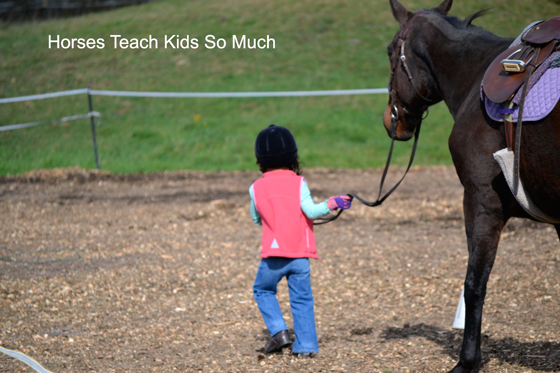
Hopefully this helps get your child started on their horse journey.
At the end of the day, you have to listen to your child and your gut. If you or your child is uncomfortable, don’t like the barn, feel like you can’t talk to the instructor, are overwhelmed by the demands of the barn then keep looking. You should never feel like your questions aren’t important or that your child isn’t a priority during their lesson time. If you happen to choose one and find it’s not a good fit, there is nothing to prevent you moving to another barn.

